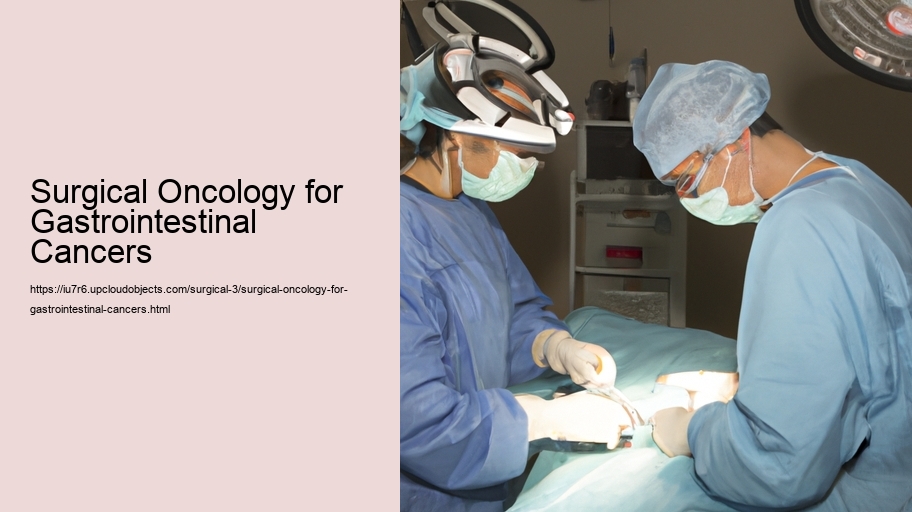Surgical oncology for gastrointestinal cancers represents a critical and highly specialized field within the medical community, dedicated to the management and treatment of cancers that affect the digestive system. This includes cancers of the esophagus, stomach, liver, pancreas, bile ducts, small intestine, colon, rectum, and anus. The role of surgical oncology is not only pivotal in the curative treatment of these malignancies but also in the palliative care of patients to improve their quality of life.
When we discuss gastrointestinal (GI) cancers, we are referring to a group of diseases that, despite sharing a common anatomical region, are distinct in their epidemiology, pathology, clinical presentation, and response to treatment. These cancers can be particularly challenging due to the complexity of the digestive system and its critical role in the body's function. Early detection and accurate staging are essential in the management, as they determine the appropriateness and extent of the surgical intervention.
Surgical resection, where the cancerous tissue is removed, often offers the best chance for cure, especially if the cancer has not metastasized or spread to other parts of the body. The goal of surgery is to remove not only the tumor but also a margin of healthy tissue around it, to ensure that no cancer cells are left behind. In some cases, lymph nodes in the vicinity of the tumor are also removed for pathological examination, as their status helps in staging the cancer and planning further treatment, such as chemotherapy or radiation therapy.
The complexity of GI surgical oncology is such that procedures can range from minimally invasive techniques, like laparoscopy or robotic surgery, to more extensive operations. For instance, a Whipple procedure, one of the most demanding surgeries performed on humans, involves removing the head of the pancreas, part of the small intestine, the gallbladder, and the bile duct, and then reconstructing the digestive system to allow for normal digestion and absorption. Such operations require highly skilled surgeons and multidisciplinary teams to manage the pre-operative, intra-operative, and post-operative challenges.
Advancements in surgical techniques and technologies have greatly improved outcomes for patients with GI cancers. For example, the development of enhanced recovery after surgery (ERAS) protocols has significantly reduced complications and shortened hospital stays. Surgeons are now able to perform complex resections with greater precision and less morbidity, thanks to improvements in surgical instruments, imaging techniques, and the advent of robotic surgery.
Although surgery plays a critical role in the treatment of GI cancers, it is often part of a multimodal approach. Chemotherapy, radiation therapy, targeted biological therapies, and immunotherapy can be used in conjunction with surgery. The sequence and combination of these treatments are tailored to the individual patient, depending on the type and stage of cancer, as well as the patient's overall health and preferences.
The journey for a patient diagnosed with a GI cancer is often a long and arduous one, filled with uncertainty and concern. The compassionate care provided by surgical oncologists and the multidisciplinary team is just as important as the technical prowess displayed in the operating room. These healthcare professionals not only offer their expertise but also support and guidance to patients and their families during a challenging time.
In conclusion, surgical oncology for gastrointestinal cancers is a field that embodies the intersection of science, skill, and compassion. Surgeons in this arena are tasked with not only removing the disease but also restoring the patient's ability to function and enjoy life. As research continues to advance our understanding of these complex diseases, surgical oncology will remain at the forefront of delivering hope and healing to those affected by gastrointestinal cancers.
